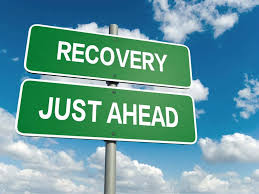The Importance of Recovery in Your Wellness Journey
Recovery is an essential component of any wellness journey, yet it is often overlooked or undervalued. Whether you are engaging in physical exercise, pursuing personal growth, or managing stress, allowing time for recovery is crucial for your overall well-being.
Physical recovery plays a key role in exercise and fitness. When you work out, you are essentially breaking down muscle tissue. It is during the recovery period that your muscles repair and grow stronger. Without adequate rest and recovery time, you risk overtraining, which can lead to fatigue, injury, and decreased performance.
Similarly, mental and emotional recovery are vital for maintaining a healthy mind. In today’s fast-paced world, we are constantly bombarded with stimuli and stressors that can take a toll on our mental health. Taking time to rest, relax, and recharge allows your mind to process information, regulate emotions, and improve cognitive function.
Recovery also encompasses more than just physical and mental aspects. It involves nurturing your soul and spirit as well. Engaging in activities that bring you joy, practicing mindfulness or meditation, connecting with nature, or spending time with loved ones are all ways to replenish your spirit and foster a sense of inner peace.
Remember that recovery looks different for everyone. It’s important to listen to your body and mind’s cues to determine what kind of recovery you need at any given time. Whether it’s taking a day off from intense workouts, scheduling regular self-care practices, or seeking professional help when needed, prioritizing recovery is a proactive step towards maintaining balance and well-being in your life.
So next time you embark on a new fitness regimen, set ambitious goals at work, or face challenging situations in life, remember that recovery is not a sign of weakness but a strategic investment in your overall wellness.
7 Essential Tips for Effective Recovery and Well-being
- Get plenty of rest and sleep.
- Stay hydrated by drinking enough water.
- Eat a balanced and nutritious diet.
- Engage in gentle physical activities like walking or yoga.
- Practice relaxation techniques such as deep breathing or meditation.
- Connect with supportive friends and family members.
- Seek professional help if needed, such as therapy or counseling.
Get plenty of rest and sleep.
Getting plenty of rest and sleep is a crucial aspect of effective recovery. Sleep is when our bodies repair and regenerate, allowing muscles to heal, hormones to rebalance, and the mind to process information. Adequate rest not only enhances physical recovery but also plays a significant role in mental well-being, improving mood, concentration, and overall cognitive function. Prioritizing quality sleep sets the foundation for a successful recovery process, enabling us to face each day with renewed energy and vitality.
Stay hydrated by drinking enough water.
Staying hydrated by drinking enough water is a crucial aspect of the recovery process. Hydration plays a vital role in supporting the body’s functions, including muscle repair and growth, cognitive function, and overall well-being. Adequate water intake helps flush out toxins, regulate body temperature, and maintain proper circulation, all of which are essential for optimal recovery after physical exertion or mental stress. By prioritizing hydration, you can enhance your body’s ability to recover efficiently and effectively, ensuring that you feel refreshed and rejuvenated to take on the challenges ahead.
Eat a balanced and nutritious diet.
Eating a balanced and nutritious diet is a crucial aspect of supporting your recovery process. The food you consume provides essential nutrients that help repair and replenish your body after physical exertion or periods of stress. By fueling your body with a variety of vitamins, minerals, proteins, and carbohydrates, you not only aid in muscle recovery but also support overall health and well-being. Incorporating nutrient-dense foods into your meals can enhance your energy levels, promote healing, and optimize your body’s ability to bounce back from challenges. Remember, what you eat plays a significant role in how effectively your body can recover and thrive.
Engage in gentle physical activities like walking or yoga.
Engaging in gentle physical activities like walking or yoga can be a beneficial way to support your recovery process. These low-impact exercises help improve circulation, flexibility, and overall well-being without putting excessive strain on your body. Walking allows you to enjoy the outdoors and clear your mind while promoting movement and blood flow. Yoga, on the other hand, combines gentle movements with mindfulness and breathing techniques to reduce stress, increase relaxation, and enhance body awareness. Incorporating these activities into your routine can aid in physical recovery, promote mental clarity, and contribute to a balanced approach to wellness.
Practice relaxation techniques such as deep breathing or meditation.
To enhance your recovery process, consider incorporating relaxation techniques such as deep breathing or meditation into your daily routine. These practices can help calm the mind, reduce stress levels, and promote a sense of inner peace. By taking just a few moments each day to engage in deep breathing exercises or meditation, you can recharge both mentally and physically, allowing your body to recover more effectively and supporting your overall well-being.
Connect with supportive friends and family members.
Connecting with supportive friends and family members is a valuable tip for promoting recovery in various aspects of life. Building strong relationships with loved ones can provide emotional support, encouragement, and a sense of belonging during challenging times. Sharing your thoughts and feelings with trusted individuals can help alleviate stress, improve mental well-being, and foster resilience. Whether you need a listening ear, a shoulder to lean on, or simply someone to share moments of joy with, the presence of supportive friends and family members can make a significant difference in your recovery journey.
Seek professional help if needed, such as therapy or counseling.
It is important to prioritize your mental and emotional well-being by seeking professional help if needed, such as therapy or counseling. Sometimes, recovery requires more than just self-care practices, and reaching out to a trained therapist or counselor can provide you with the support and guidance necessary to navigate challenging times. These professionals can offer valuable insights, coping strategies, and a safe space for you to explore your thoughts and emotions, ultimately helping you on your journey towards healing and growth.




